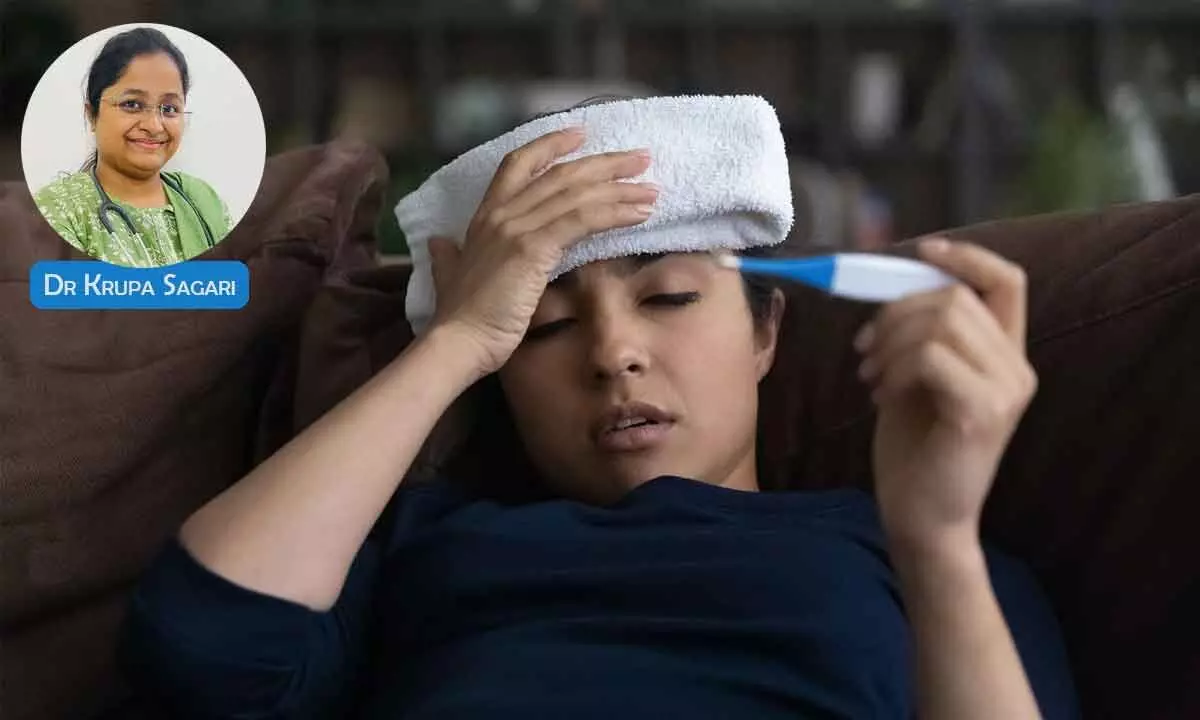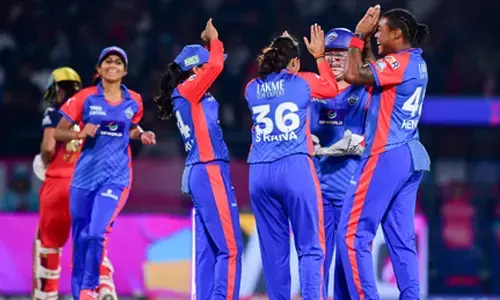Typhoid in The Monsoon Season

Dr Krupa Sagari, MD, Paediatrics, Consultant Paediatrician, Healing Touch Children Hospital, Secunderabad, talks about typhoid fever symptoms and treatment
Pediatric typhoid fever is a significant concern, especially during the monsoon season in India. Typhoid is an infectious disease caused by the bacterium Salmonella Typhi. It spreads primarily through contaminated food and water, making it more prevalent during the monsoon.
Incidence: The incidence of typhoid tends to rise during the monsoon season due to increased waterborne and foodborne transmission. Children are particularly susceptible to the disease because of their weaker immune systems and a higher likelihood of exposure to contaminated sources.
Symptoms: Typhoid symptoms typically include high fever, headache, abdominal pain, diarrhoea or constipation, loss of appetite, and weakness. Children may also experience vomiting and lethargy.
Diagnosis: A blood test is typically used to confirm the presence of the Salmonella Typhi bacteria.
Prevention: The best way to prevent typhoid is to promote good hygiene practices, such as handwashing before and after using the toilet, drinking only boiled or treated water, and avoiding street food.
Vaccination: Two types of typhoid vaccines are commonly used: the injectable Vi polysaccharide vaccine and the oral live attenuated Ty21a vaccine.
Treatment: Typhoid is treatable with antibiotics, and early treatment can prevent complications.
Complications: If untreated or not treated adequately, typhoid can lead to severe complications, such as intestinal perforation, which can be life-threatening.
Given the seriousness of typhoid and its potential complications, it is essential to create awareness about the disease, promote proper hygiene and sanitation practices, and ensure that children have access to clean drinking water and safe food during the monsoon season. Parents and caregivers should remain vigilant for any signs of illness in children and seek medical attention promptly if they suspect typhoid.
(Email :[email protected], phone number: 9573971308, 040 -44760600, 66339333)














